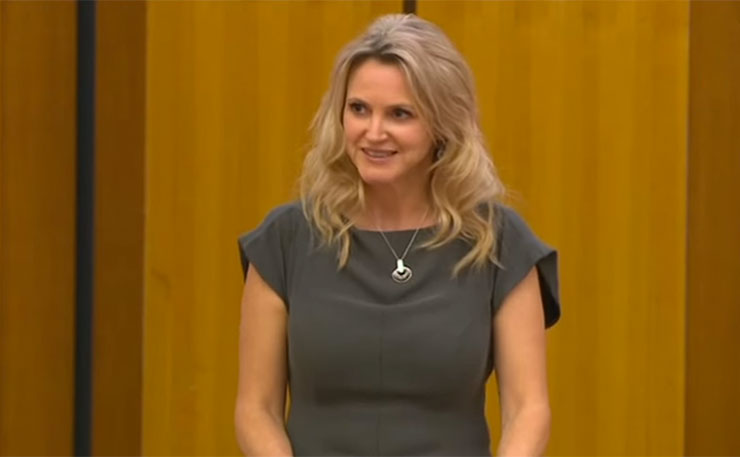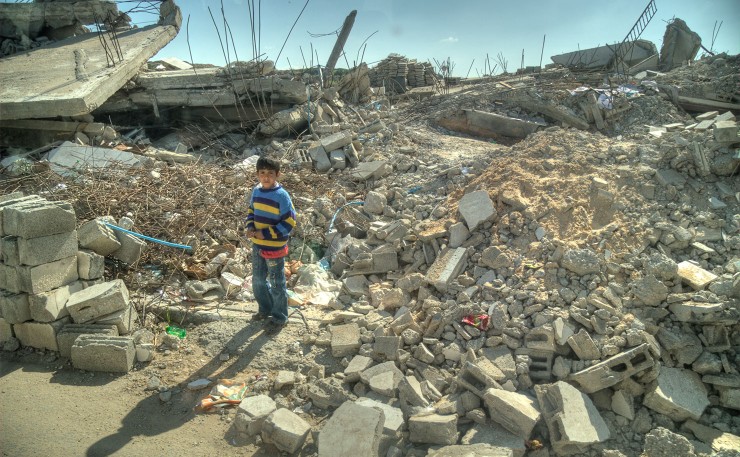DON’T MISS ANYTHING! ONE CLICK TO GET NEW MATILDA DELIVERED DIRECT TO YOUR INBOX, FREE!
Australia has a long history of turning a blind eye to atrocities in Palestine, writes Bassam Dally.
In the past week, dozens of Palestinians including two pregnant women and three infants have been killed when Israeli warplanes targeted their neighbourhoods in Gaza. Residential buildings, hospitals, and schools were also targeted.
There were calls for a ceasefire as Israel’s Prime Minister Benjamin Netanyahu vowed to launch “massive strikes” on the tiny strip, where Israel has kept two million Gazans besieged for over a decade. One might think this would be enough to shift the conversation on Palestine globally, but it is not. A similar kind of ignorance plagues the public discourse in Australia.
In April 2017, Bassem Tamimi, a schoolteacher from the Palestinian village of Nabi Saleh was scheduled to conduct a speaking tour of Australia organised by a coalition of pro-Palestinian organisations.
Since 2009 Tamimi had been leading a non-violent campaign against the expropriation of Nabi Saleh’s lands for the neighbouring Jewish settlement of Halamish. During the campaign he was jailed repeatedly, while hundreds of his neighbours were injured and two killed by Israeli soldiers, including Tamimi’s brother and brother-in-law.
As Tamimi was about to board his flight, he was notified that his visa had been cancelled because The Department of Immigration and Border Protection had “recently been made aware of information that indicates there is a risk that members of the public will react adversely to Mr Tamimi’s presence in Australia”.
No explanation was provided as to the source or nature of the “information”. Although the Australian government has since issued visas to white nationalist speakers Milo Yianopoulis and Lauren Southern, it clearly regarded the feelings of certain “members of the public” towards Tamimi as sufficient grounds for barring his entry to Australia.

Regrettably, the decision follows a familiar pattern of lobbying and censorship that can be traced back to 2003 when Howard government ministers lined up behind the Australia/Israel and Jewish Affairs Council (AIJAC) in denouncing the Sydney Peace Foundation for awarding its Peace Prize to the Palestinian feminist and peace activist Hanan Ashrawi.
Writing in the West Australian, AIJAC’s executive director Colin Rubenstein, welcomed the decision by Melissa Parke, the Labor candidate for Curtin, to step down following the publication of a speech in which she described Israel’s oppression of the Palestinians as “worse than the South African system of apartheid” and noted that Israel’s “influence in our political system and foreign policy is substantial”.
According to Rubenstein, such statements promote anti-Semitic tropes “on the role of Australian citizens, primarily the Australian Jewish community, in advocating for good Australia-Israel ties”.
His claim raises a number of issues.
First, Ms Parke is an international human rights lawyer who can speak with considerable authority on Palestine, having lived there for two and a half years while working for the United Nations. For nine years she was able to witness Israel’s influence on Australian politics first-hand while serving as the Federal MP for Fremantle.
Second, the influence of AIJAC and other pro-Israeli lobby groups has been attested to by former prime ministers Malcolm Fraser and Kevin Rudd, former foreign minister Bob Carr and former Jerusalem correspondent for The Australian John Lyons. Indeed AIJAC’s own website describes it as working to “counteract instances of anti-Israel bias and misinformation in the Australian media and wider public debate”.
Third, neither Rubenstein nor any member of AIJAC’s staff are elected and there is no evidence that they represent all or even a majority of Australia’s Jewish community.
Fourth, Jewish opinion is by no means unanimous regarding Israel and the Palestinians, and AIJAC’s claim that it “conveys the interests of the Australian Jewish community to government, media and other community organisations” is a dangerous misrepresentation.

Finally, it is important to note that Parke’s claim that Israel’s occupation is worse than apartheid in South Africa has been corroborated by Archbishop Desmond Tutu, a leader of the anti-apartheid struggle in South Africa. Moreover her testimony that Israeli soldiers forced a pregnant Palestinian woman to swallow bleach has been substantiated by both Palestinian and international human rights organisations, as well as reports in the Australian media.
Yet rather than disputing the truth of Parke’s assertions, Rubenstein denounced them for being “shameful and inflammatory”.
In this regard he is correct. It is indeed shameful that an apartheid regime is flourishing in Palestine 25 years after apartheid was abolished in South Africa. Stories of a defenceless indigenous population being humiliated and brutalised by the soldiers of an occupying army should be inflammatory.
When powerful interest groups succeed in suppressing facts and opinions that they find embarrassing, they deprive Australians of their right to information. As a well-informed citizenry is indispensable to a functioning democracy, it is to be hoped that “inflammatory” truths will continue to be spoken.
DON’T MISS ANYTHING! ONE CLICK TO GET NEW MATILDA DELIVERED DIRECT TO YOUR INBOX, FREE!
Donate To New Matilda
New Matilda is a small, independent media outlet. We survive through reader contributions, and never losing a lawsuit. If you got something from this article, giving something back helps us to continue speaking truth to power. Every little bit counts.




